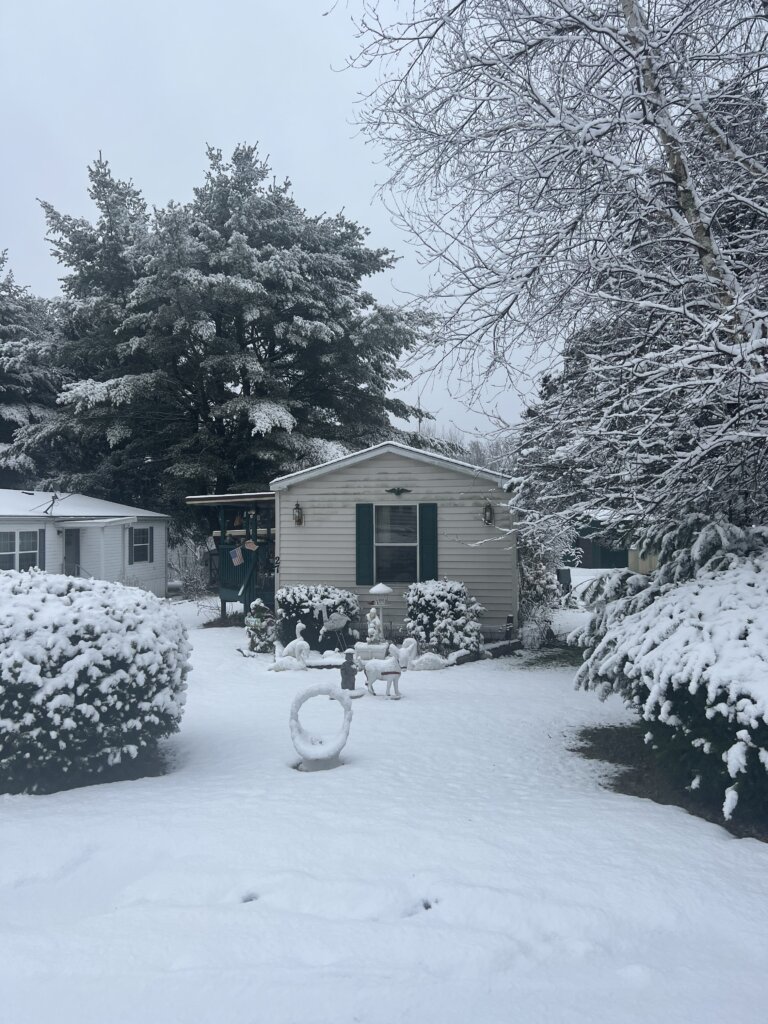If you fall behind on your property taxes or municipal charges, like water bill or any other, the past-due amount becomes a lien on your home. All states have laws allowing the local government to then sell your home through a tax lien process to collect the delinquent taxes. In this article, you’ll learn about how property tax sale works and how you might be able to save your home even after a tax sale happens.
How long can property taxes go unpaid in PA?
Two years. The second Monday of September every year, the Bureau will conduct an Upset Sale: this is the first sale that a property must go through. At this sale, properties that are two years delinquent in taxes will be auctioned.
Facing Foreclosure? Sell Your Mobile Home Fast To Us Instead!
Contact Us
We’d love to hear from you! Please fill out this form and we’ll get in touch with you shortly.
What Is a Tax Sale?
A tax sale is the sale of a real estate property that results when a taxpayer reaches a certain point of delinquency in their owed property tax payments.
KEY TAKEAWAYS
- A tax sale is the sale of a piece of real estate due to unpaid property taxes.
- There are two types of tax sales: a tax deed sale, which sells the property, including unpaid taxes, at auction, and a tax lien sale, which sells the liens on the property to a buyer who may then pursue the collection of monies owed.
- Before a tax sale, during a right-of-redemption period, a property owner may pay off their tax debt and reclaim the property.
Understanding Tax Sales
Every state has its own laws for tax sales that must be followed for these sales to be valid. The laws will vary based on which entity is requiring the taxes, whether it is a local or state jurisdiction. In most areas, the basic requirement is that adequate notice is given to the taxpayer to pay the outstanding taxes, and any resulting sale usually must be open to the public, so that an adequate price is obtained for the property.12 There is usually a waiting period that ranges from several months to several years before tax collection agencies are involved.3
When a tax sale is triggered, the property owner has a right-of-redemption period. During this period they have the opportunity to pay off the delinquent taxes in full and reclaim the property. If the property owner fails to pay the back taxes, along with any accrued interest, the property is then eligible to be sold at auction or through other means by a governmental entity.4
When a property goes to auction in a tax sale, the minimum bid price is usually set at 80% of the forced sale value of the property after subtracting any liens, based on the fair market value (FMV) as determined by the Internal Revenue Service (IRS).5
2,500
The approximate number of U.S. jurisdictions—cities, townships, and counties—that allow tax lien sales, located in 23 states.6


Tax Lien Sale vs. Tax Deed Sale
There are two types of tax sales that can occur when a property has unpaid property taxes. The first is a tax lien sale, and the second is a tax deed sale. In a tax lien sale, the liens on the home are auctioned off to the highest bidder, which gives them the legal right to demand lien collection, along with interest, from the property or homeowner. In the event that the property owner is unable to pay the liens, the bidder who purchased them can have the property foreclosed.
A tax deed sale, however, sells the entire property, unpaid taxes included, at a public auction. Jurisdictions may offer a right of redemption after a tax deed sale, which allows a homeowner to get their property back within a redemption period if they reimburse the purchaser the amount they paid at the sale.7
Tax lien sales are both an incentive for the lien buyer to make money off the interest of the lien and a way to force the property owner to pay the outstanding taxes. Tax lien sales are only legal in 23 states in the U.S. (approximately 2,500 jurisdictions—cities, townships, and counties), and each state has its own cap for the maximum amount of interest that the new lien owner can accrue in interest.
Sell Your Mobile or Manufactured Home On Your Terms
What Can Cause a Tax Lien on a Home?
Tax liens may arise for past-due tax bills, including property tax, school tax, municipal water or sewer bills, and so on. The IRS or state tax authority may also put a tax lien on a home in the event of unpaid income taxes.
How Do I See If There Are Any Tax Liens on a Home?
Generally, tax liens are a matter of public record and can be found at a municipality’s property records office (or website). This may be the office of the town or county clerk or tax assessor.
How Property Tax Sales Work
Each state has different laws for tax sales. Generally, the taxing authority, usually the county, doesn’t have to go to court before holding a tax sale.
Notice About Delinquent Property Taxes
Instead, the process often starts when the taxing authority files a list of delinquent taxes, which includes information about the taxpayer, the property, and the amount due, with the recorder’s office and publishes a copy in the newspaper. Also, the homeowner is typically entitled to some form of notice of the pending tax sale.
How Property Tax Sales Work
Then, in some places, the county holds a public auction. Commonly, bidding begins at the amount that covers the delinquent taxes, interest, and related penalties owed to the taxing authority. The winning bidder at the sale normally receives either a:
- tax deed, or
- tax lien certificate (see below).
Tax Foreclosures and Other Procedures
In some jurisdictions, though, a sale isn’t held. The taxing authority simply executes its lien by taking title to the home. In other places, the taxing authority must foreclose the property, usually by filing a lawsuit in court, before holding a tax sale.
Tax Deed Sales
In tax deed sales, the taxing authority sells the title to the home.
Tax Lien Certificate Sales
On the other hand, a tax lien certificate sale doesn’t convey ownership of the property. Instead, the taxing authority sells its lien, and the purchaser usually receives a tax lien certificate.
This certificate entitles the purchaser to take over the taxing authority’s position and collect full payment of the past-due taxes, plus interest, from the delinquent taxpayer. If the delinquent taxes aren’t paid by a certain date, the purchaser of the lien generally has a right to foreclose the lien or take specific steps to convert the certificate to a deed and get title to the home.
How to Save Your Home After a Property Tax Sale
Even after your property goes to a tax sale, you might have options to save the home.
Contact Us
We’d love to hear from you! Please fill out this form and we’ll get in touch with you shortly.
Saving Your Home After a Tax Deed Sale
You might be able to reclaim your home after a tax deed sale by redeeming it or setting aside the sale.
Redeeming the property. Many jurisdictions that sell tax deeds offer a right of redemption after the sale, which allows you to get your home back. To redeem, you must reimburse the purchaser the amount paid at the sale or pay the taxes owed, plus interest and costs, within a specific time frame called a “redemption period,” which is generally between one to three years after the sale.
But sometimes, the redemption period takes place before the sale. If you pay the delinquent taxes before the sale, the sale won’t happen.
Setting aside a sale. If you can’t redeem the home, you might be able to set aside (invalidate) the tax sale after it has occurred by showing, for example:
- defects in the tax lien or tax sale process
- the taxes were paid or not owed, or
- a good reason why you neglected to pay the past-due amounts.
Saving Your Home After a Tax Lien Sale
After a tax lien sale, you still own the home because the purchaser only buys a lien against your property. If you pay off the amount of the lien or the purchase price (depending on the situation), plus allowed costs, like interest, within a specified time, you get to keep the home. This process, too, is referred to as “redeeming” the home.
Testimonials
“Natalya and her team did their best to help me with selling my home. It was on the market for almost two months before I reached out and asked for some help to sell. The whole process was super easy and fast – it took us less then a week to sell and move to our new home.”
SELL A MOBILE HOUSE – USEFUL LINKS
Useful Docs: Sell a Mobile Home
Learn more from our latest blogs:
- Can I Sell My Mobile Home in Chester County If It Needs Repairs?
- How to Sell Your Mobile Home Fast in Monroe County: Expert Tips for a Stress-Free Process
- What is the Best Way to Sell a Mobile Home in Coatesville, PA?
- Can You Sell a Mobile Home in Quakertown, PA Without a Title?
- How Weather in Hazleton, PA Affects the Value of Your Mobile Home
